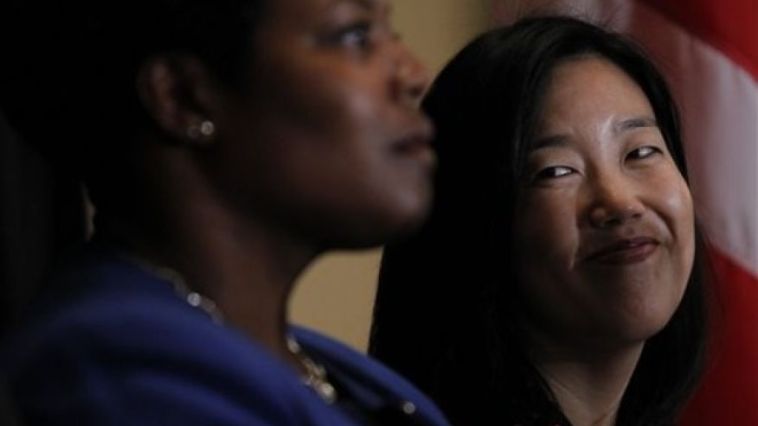WASHINGTON — Public school teachers in the District of Columbia are improving their performance because they’re motivated by the possibility of substantial pay raises or because they don’t want to get fired, according to an academic study of the groundbreaking teacher-evaluation system implemented by former schools chancellor Michelle Rhee.
Videos By Rare
The school system in the nation’s capital is unique among large school districts for the complexity of its teacher-evaluation system, which scores the performance of teachers based on classroom observations, student test scores and other factors.
Previous studies of pay-for-performance systems in public schools have found little to no correlation between merit-based pay and teacher performance. But the study released Thursday by researchers at Stanford University and the University of Virginia found that teachers in the district did improve, at least based on the criteria devised by the school system to evaluate their performance.
Professor Thomas Dee of Stanford, one of the study’s authors, said the district appears to have found a more effective pay-for-performance model than those studied previously.
“D.C. is fielding incentives that are just very different from what we’ve seen before,” Dee said. “Part of that is, it’s not just cash for test scores. It’s instead incentivizing things that teachers can control more directly.”
City teachers rated as highly effective are eligible for substantial bonuses, while teachers found to be ineffective — or minimally effective two years in a row — can be fired.
“Dismissal threats had substantial effects, both increasing the voluntary attrition of low-performing teachers and improving the performance of the previously low-performing teachers,” Dee and James Wyckoff of U.Va. wrote. “Furthermore … financial incentives further improved the performance of high-performing teachers.”
The study found higher departure rates for teachers deemed to be ineffective and better retention rates for those who were eligible for bonuses, which can be as high as $25,000 a year. Teachers in the district can earn a $131,000 annual salary, one of the highest in the nation for a public school instructor, after nine years on the job.
While other systems have fought with teachers’ unions to implement evaluation systems based on test scores, the district was permitted to do so by an act of Congress. Rhee began to exercise that option in 2007 when she was hired by then-mayor Adrian Fenty.
Rhee stepped down after Fenty lost his re-election bid in 2010. But the evaluation system has continued under Mayor Vincent Gray and chancellor Kaya Henderson, who had been Rhee’s top deputy. Since the evaluation system took effect in 2009, 490 teachers have been fired for poor performance.
Schools in Houston, Memphis and New Haven, Connecticut, are among those that have implemented evaluation systems similar to the district’s, and at least half the states are incorporating test scores into teacher evaluations. But other school systems have attempted unsuccessfully to implement pay-for-performance models, including New York, Chicago and Milwaukee, which returned federal grant money intended for establishing them.
Henderson hailed the study as evidence that the evaluation system, known as IMPACT, is working.
“It absolutely validates the approach we have taken to our work,” Henderson said in a written statement.
Mark Simon, an education policy analyst with the Economic Policy Institute in Washington who has written about IMPACT and works with unions and school systems to design evaluation programs, called the study “exciting” but cautioned that it does not show that the district’s evaluations have improved the quality of teaching.
“IMPACT is designed to identify a very small number of teachers at the bottom end for firing and a slightly larger but still small number of teachers at the top end for bonuses. So it tends to be a motivator at the extremes,” Stein said. “But for the vast majority of teachers, the question is whether IMPACT is helping them to teach better, and that question was not addressed by this study.”
Follow Ben Nuckols on Twitter at https://twitter.com/APBenNuckols .

